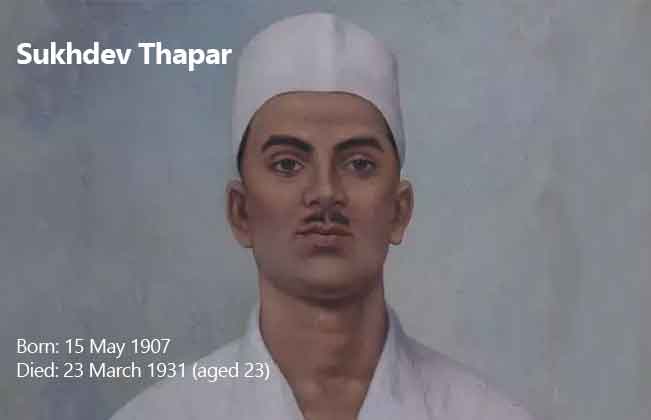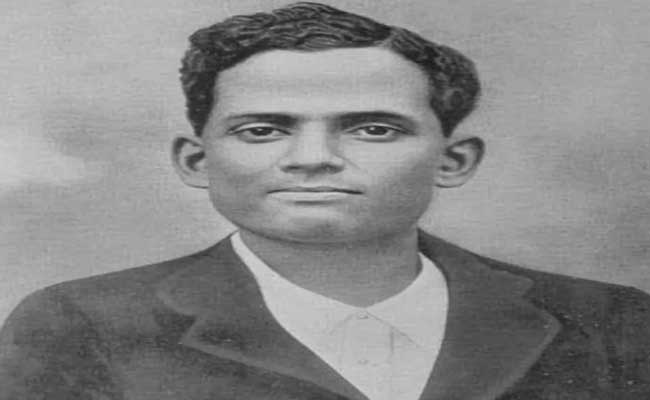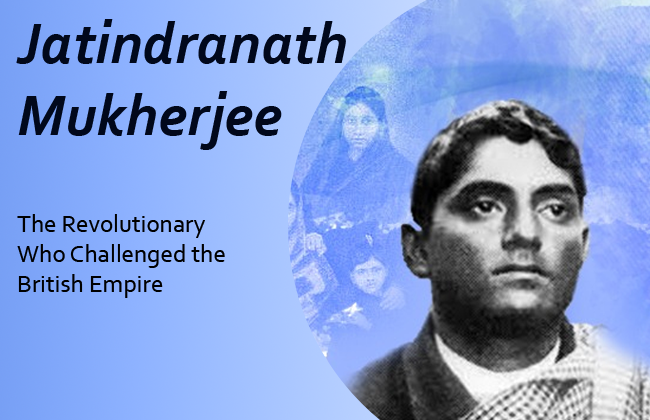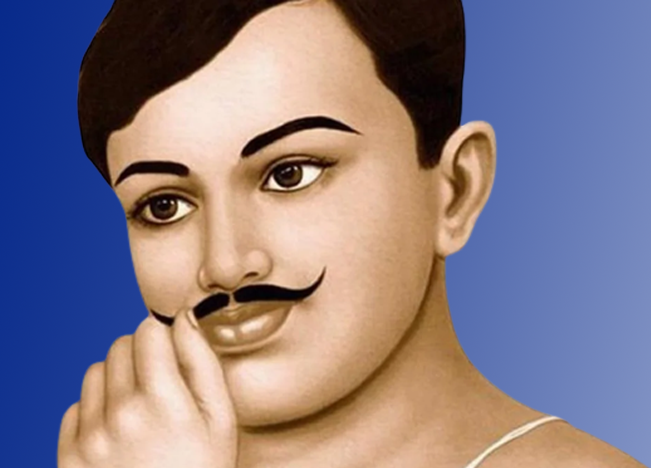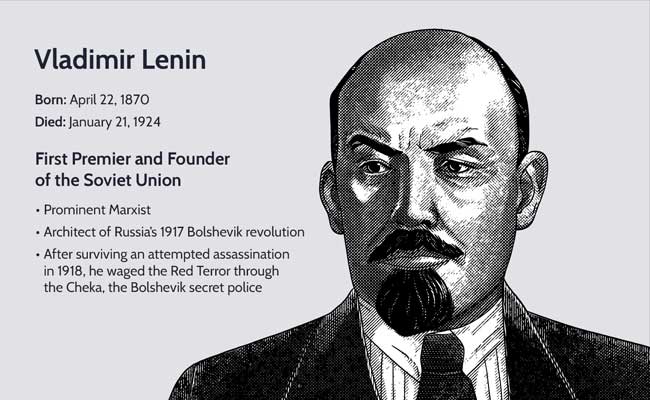Sukhdev Thapar was a prominent Indian freedom fighter and revolutionary who played a crucial role in India’s struggle for independence from British colonial rule. He was born on May 15, 1907, in Ludhiana, Punjab, to Ramlal Thapar and Ralli Devi.
Sukhdev Thapar was an active member of the Hindustan Socialist Republican Association (HSRA), which was founded by Chandrashekhar Azad, Bhagat Singh, and other revolutionaries. He participated in various acts of revolutionary violence against the British, including the Lahore Conspiracy Case, which ultimately led to his execution at the young age of 23.
Despite his young age, Sukhdev Thapar was a highly educated and intelligent individual. He graduated from the National College in Lahore with a degree in Science, and he was a passionate reader of books on politics, economics, and history. He was deeply committed to the cause of Indian independence and was willing to make any sacrifice necessary to achieve it.
Sukhdev Thapar was a close associate of Bhagat Singh and played an important role in the HSRA’s activities. He was involved in the planning and execution of several revolutionary actions, including the bombing of the Central Legislative Assembly in Delhi in 1929. In the Lahore Conspiracy Case, he was charged with conspiracy to wage war against the British government, and he was sentenced to death along with Bhagat Singh and Shivaram Rajguru.
Sukhdev Thapar’s execution on March 23, 1931, was a major blow to the Indian freedom struggle. He went to the gallows with a smile on his face and a sense of pride in his heart, knowing that he had given his life for the cause of Indian independence. His sacrifice inspired countless others to take up the struggle against British colonial rule, and he remains a revered figure in Indian history.
In recognition of his contribution to the Indian freedom struggle, Sukhdev Thapar’s name is enshrined in the Indian national anthem, “Jana Gana Mana.” He is also remembered through various memorials and monuments across India, including a statue at the Hussainiwala National Martyrs Memorial in Punjab. His life and legacy continue to inspire new generations of Indians to fight for justice, freedom, and equality.
![]()

